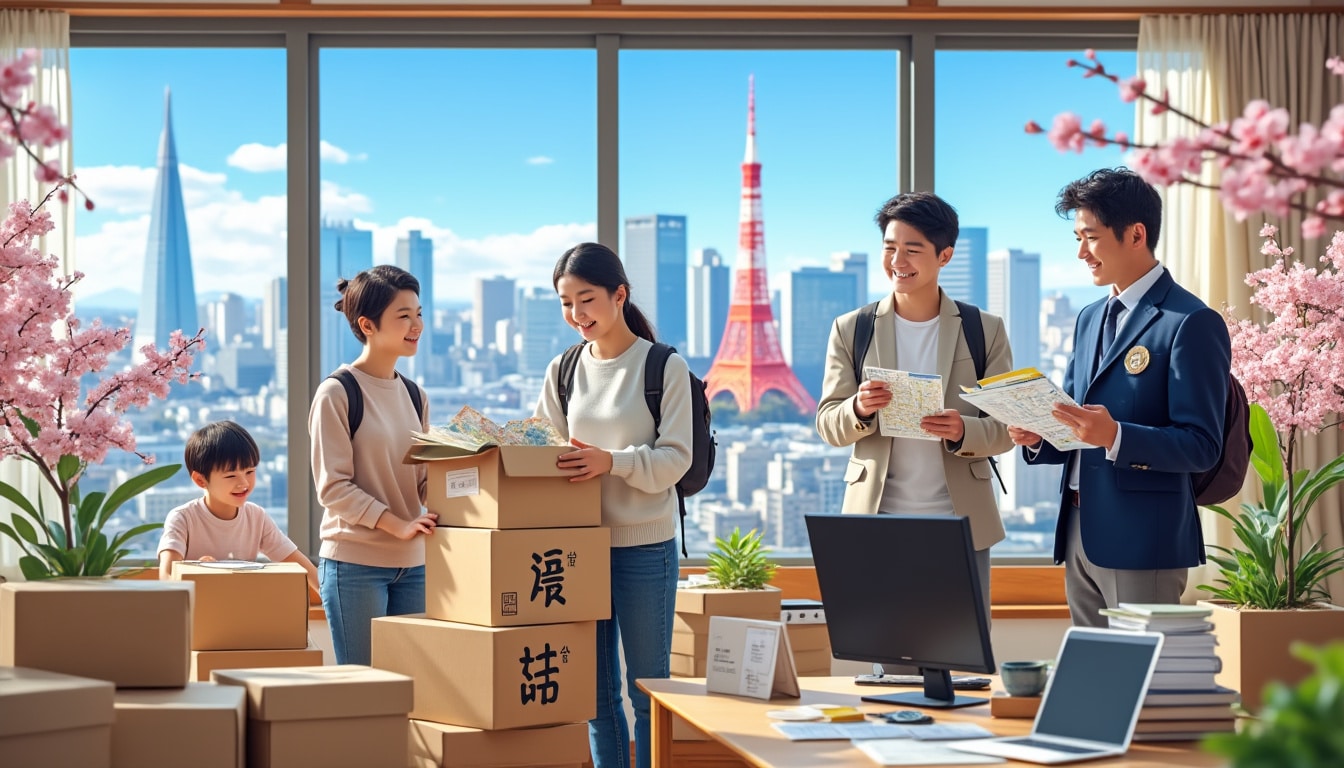Osaka, known as Japan’s third-largest city, stands out as a dynamic hub of modern architecture, lively nightlife, and mouth-watering street food. For those considering moving to Osaka, the journey involves a complex blend of bureaucratic processes, cultural adaptations, and financial planning. With its high standard of living and unique cultural nuances, Osaka offers an alluring blend of tradition and modernity, making it a prime destination for expats from around the globe. But how does one successfully navigate the intricacies of moving to this vibrant city? From legal formalities to lifestyle adjustments, here is an expansive guide on how to move to Osaka legally and successfully establish life there as an expat.
Understanding Visa Options for Moving to Osaka
Before moving to Osaka, one must first understand the various visa options available. Whether you are planning to work, study, or join family, Japan offers specific visa categories that cater to different purposes. Securing the right visa is a critical first step and, often, the most complex hurdle in the relocation process.
1. Work Visas: For those aiming to work in Japan, the “Engineer/Specialist in Humanities/International Services” visa is popular among IT professionals, teachers, and those in the humanities field. To qualify, applicants typically need a job offer from a Japanese company and a university degree or equivalent experience. Once an employer in Osaka agrees to hire you, they will often assist in obtaining the Certificate of Eligibility (COE), a crucial document for your visa application.
2. Student Visas: Aspiring students need to get accepted by a recognized educational institution in Osaka. The institution will usually help in acquiring the COE needed for a student visa. Remember, student visas allow part-time work, providing an opportunity to earn while you study.
3. Spousal and Dependent Visas: Those married to a Japanese national can apply for the “Spouse of Japanese National” visa. If you are the family member of a foreign resident working in Japan, a dependent visa might be applicable. Both options require proof of relationship and financial support.
Besides these common visas, there’s the Business Manager visa for entrepreneurs, the Working Holiday visa (for certain nationalities), and rarely, specialized visas such as the Long-Term Resident for people with Japanese ancestry. It’s essential to research and consult with Visa Services, Immigration Consultants, and Legal Advisors to determine the best visa type and ensure a smooth application process.
| Visa Type | Eligibility | Duration | Notes |
|---|---|---|---|
| Work Visa | Job offer & degree | 1-5 years | Must show employment contract |
| Student Visa | Acceptance from a Japanese school | 1-4 years | Allows part-time work |
| Spouse Visa | Marriage to a Japanese citizen | 1-3 years | Requires proof of relationship |
| Business Manager Visa | Entrepreneur & investment | 1 year | For starting/managing a business |
With these visa categories in mind, collaborating with Visa Application Assistance and Legal Advisors can greatly ease the process, cutting through red tape and ensuring your applications are processed efficiently.
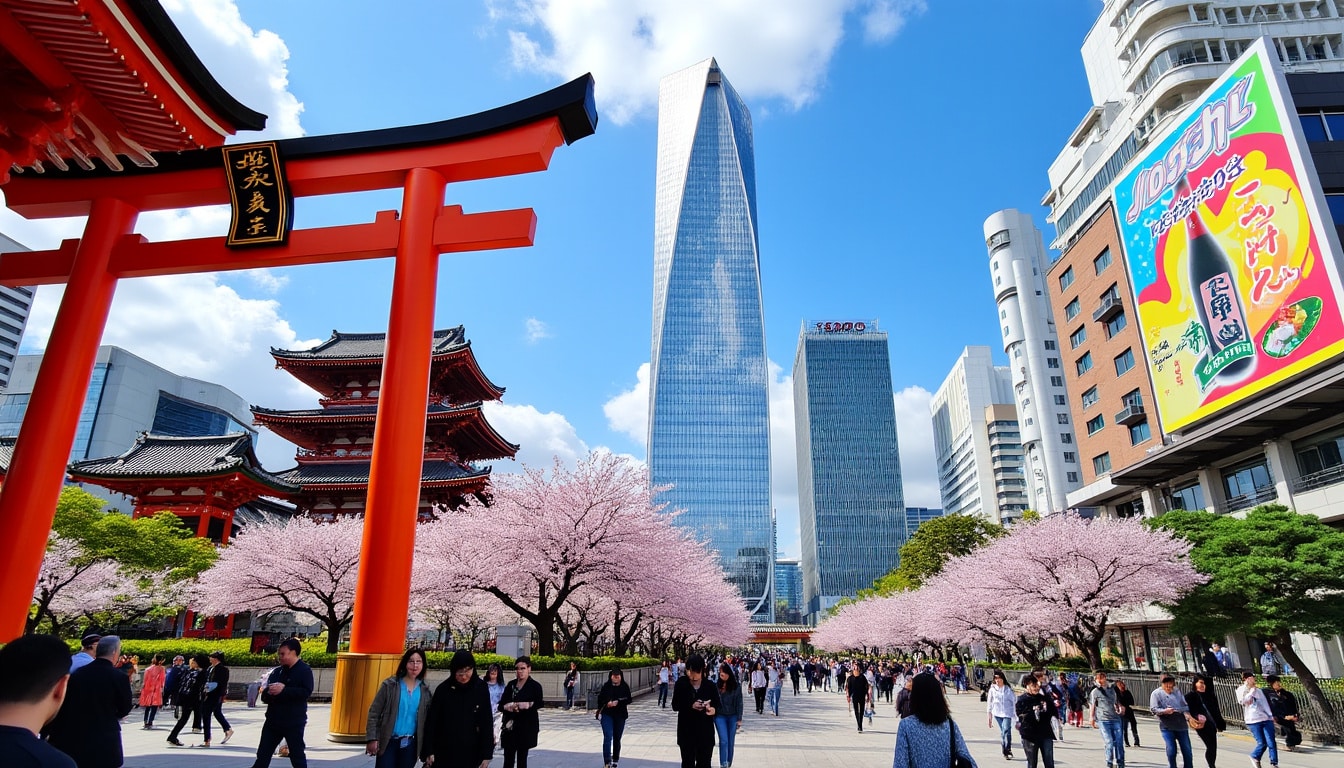
Cost of Living and Housing in Osaka
Navigating the cost of living and housing options in Osaka is another crucial step for new arrivals. The city offers a vibrant lifestyle, but it’s essential to understand the financial implications involved.
Osaka is known for its relatively high cost of living compared to other regions in Japan. Here’s a general idea of expenses:
- Housing 🏠: In the city center, a one-bedroom apartment can cost between 80,000 and 100,000 yen per month. Outside the center, prices drop to approximately 50,000 – 70,000 yen. Many expats rent initially to familiarize themselves with different neighborhoods before deciding on a permanent location.
- Utilities 💡: Monthly utilities average around 10,000 yen, covering electricity, water, and gas.
- Food 🍣: Dining out indulges in Osaka’s famous street foods like takoyaki and okonomiyaki, with meals ranging from 500 to 2,000 yen. Grocery shopping might cost a single person around 30,000 yen monthly.
- Transportation 🚆: Osaka boasts an efficient public transport system, with monthly passes costing roughly 10,000 yen, saving regular commuters both time and money.
More information on housing costs and factors to consider can be found at Osaka’s legal info rules.
Renting vs. Buying
The choice between renting and buying depends on individual circumstances. Renting provides flexibility, especially if you’re new to Osaka and intend to explore before settling. For long-term residents or those likely to stay indefinitely, buying property can be a profitable investment. However, it comes with significant initial costs, and the process can be complicated for foreigners. Consulting Real Estate Agencies specializing in expat housing is advisable.
Adjusting to Cultural Norms and Etiquette in Osaka
One of the most enriching aspects of moving to Osaka is diving into its fascinating cultural landscape. However, understanding cultural norms and etiquette is crucial to a smooth transition and avoiding unintentional faux pas.
Here are some key cultural etiquettes:
- Dining Etiquette 🍴: Avoid eating while walking, as it’s considered impolite. Enjoy meals at the establishment they were bought from or at home.
- Chopsticks Use 🥢: Never stick them upright in rice or pass food from chopstick to chopstick, as these gestures are associated with funerals.
- Shoes 🚶: Always remove shoes when entering homes or certain traditional restaurants and temples. Look for signs to store them.
- Public Behavior 🔇: Keep noise levels low, especially in public transport and other shared spaces, to maintain harmony and respect.
- Bowing 🙇: Respectfully bow when greeting. The depth of the bow reflects the respect or gratitude you wish to convey.
Embracing these customs not only demonstrates respect but enriches your experience, creating meaningful connections with locals. Learn more about Japanese customs at Osaka’s legal info rules.
Safety in Osaka
Osaka, like much of Japan, is renowned for its safety and low crime rates. However, it’s important to remain vigilant, especially regarding natural calamities like earthquakes. Familiarize yourself with safety protocols; they are part of cultural orientation services frequently offered to new residents.
Setting Up Life in Osaka: Essential Services
Once visas, housing, and cultural understanding are settled, the next step in moving to Osaka involves establishing everyday life through essential services.
Transportation: Upon arrival, securing a transportation card like IC cards (Suica or Pasmo) eases travel around the city. With extensive train and bus networks, daily commutes become straightforward.
Financial Services: Opening a bank account is critical. Most banks require a residence card and passport. International banks often cater better to foreigners, easing the banking process with English support.
Communication: Acquiring a local mobile number is almost essential. Numerous phone and internet companies operate in Osaka, with short-term SIM cards available for newcomers.
Healthcare: Enrollment in Japan’s National Health Insurance covers 70% of medical costs, and it is available to all residents with a visa for longer than three months. Visiting the municipal office for registration and an insurance card issuance is pivotal.
These steps establish a strong foundation for life in Osaka. Engaging with Cultural Orientation Services can provide personalized support and advice.
| Service | Need | Cost (monthly) | Comments |
|---|---|---|---|
| Transportation Card | Essential | ¥10,000 | For commuting & travel |
| Bank Account | Important | N/A | Primarily for salary & bills |
| Mobile/Internet | Critical | ¥5,000 – ¥8,000 | Various plans available |
| Health Insurance | Mandatory | Varies by income | Covers medical expenses |
Integration and Community Building in Osaka
Finally, successfully integrating into Osaka’s community enhances the expatriate experience. Language proficiency is a significant asset; enrolling in Language Schools is highly beneficial. Even basic Japanese enhances day-to-day interactions and deepens cultural understanding.
Participation in local events, festivals, and volunteering fosters community connections. Expats often find it rewarding to join clubs or groups that align with personal interests, such as art, music, or culinary activities.
For professional and personal support, Expat Agencies and Relocation Services provide resources for building networks and accessing services. Osaka is rich with opportunities for both community involvement and cultural immersion.
With preparations completed, expats can fully embrace life in Osaka, blending seamlessly into its vibrant culture and making the most of the unique experiences this city offers.
Connecting with Local Communities
Make a conscious effort to participate in local groups or meetups, especially those aimed at foreigners. This not only eases social adjustments but enriches your cultural understanding and network.
In closing, moving to Osaka legally involves navigating a maze of administrative tasks, financial planning, and cultural learning. However, with the right guidance and resources, your move can be a rewarding adventure, bringing you closer to the heart of Japan’s dazzling urban life. Welcome to Osaka!
FAQ
Q: What documents are needed for a work visa in Osaka?
A: You will need a valid passport, Certificate of Eligibility from a Japanese employer, visa application form, and passport-sized photos.
Q: Is it possible to find English-speaking services in Osaka?
A: Yes, particularly in central areas and international hubs. Many financial and healthcare services offer English support.
Q: How do I open a bank account as a new resident in Osaka?
A: Bring your residence card, passport, and, in some cases, a personal seal (inkan). Choose a bank known for foreigner-friendly services.

Legal Information and Rules in Osaka
Osaka is a vibrant city known for its rich history and cultural heritage. Among its many attractions, understanding the local legal landscape is crucial for both residents and visitors. Osaka’s legal system is comprehensive, offering various services and support to…

Calling and communication rules in Osaka
Osaka, known as Japan’s “second city,” is not just famous for its rich cultural tapestry and stunning culinary scene, but also for its distinctive code of social conduct. Among the array of etiquette norms that govern local interactions, calling and…
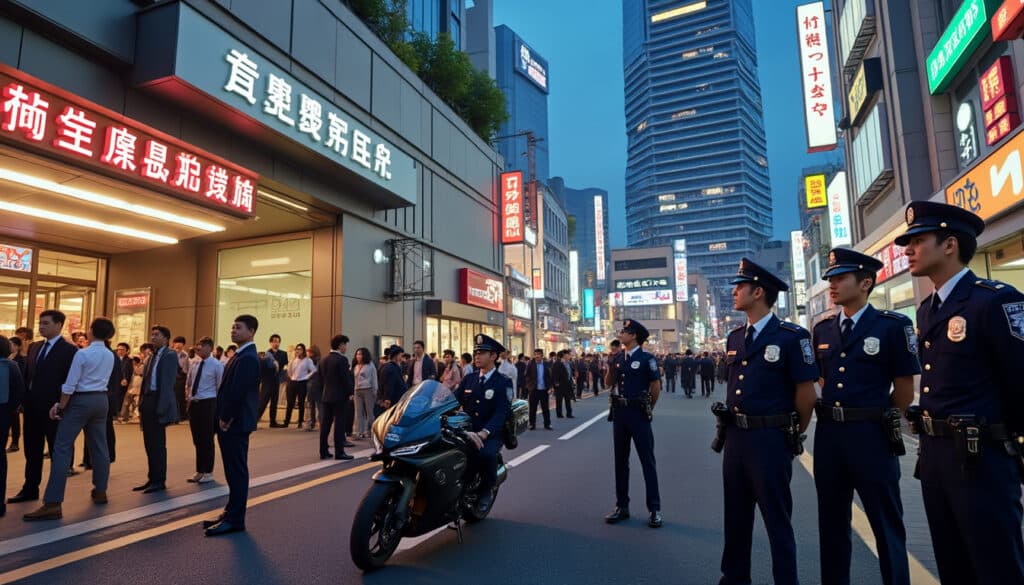
Criminal status and entry to Osaka
The intersection of criminal status and entry into Osaka can be a perplexing and sometimes daunting topic for travelers. With Japan’s renowned strict immigration protocols, it’s crucial to understand the specifics of how a criminal record can impact a visit…

Drinking and age restrictions in Osaka
Osaka, renowned for its vibrant nightlife and rich cultural tapestry, can be a captivating destination for both residents and visitors. Yet, to truly savor the experience this city offers, one must be keenly aware of its age-related laws, particularly those…
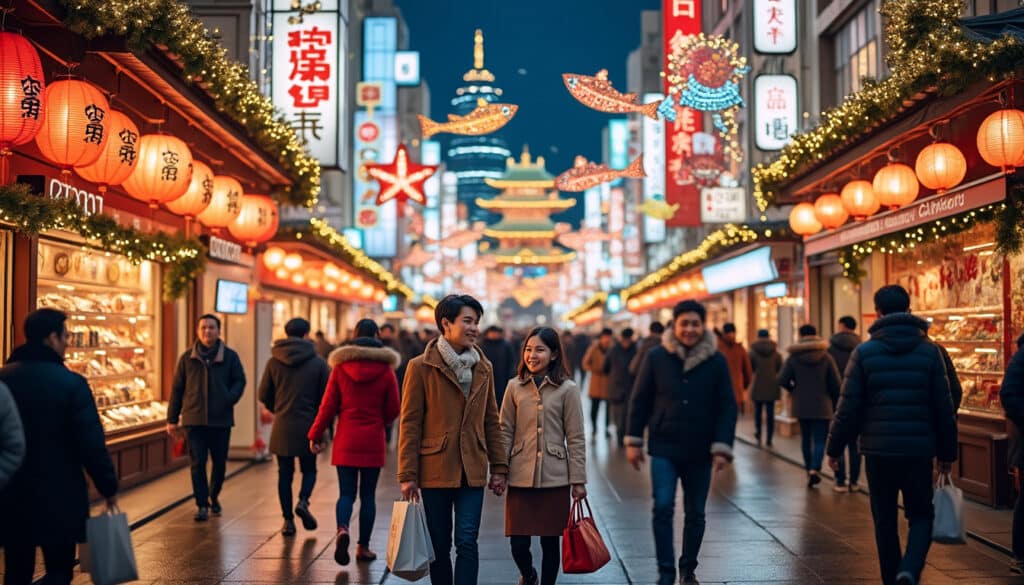
Osaka, a vibrant city known for its modern architecture, street food, and bustling nightlife, transforms into a magical wonderland during the holiday season. From the mesmerizing light displays to unique cultural festivals, spending the holidays in Osaka promises an unforgettable…

Smoking, drugs, and red light laws in Osaka
As Osaka gears up for the 2025 World Expo, the city is tightening its grip on various vice laws, reflecting a shift in socio-cultural attitudes. The expansive smoking bans, regulations around drug use, and the unique Japanese approach to the…
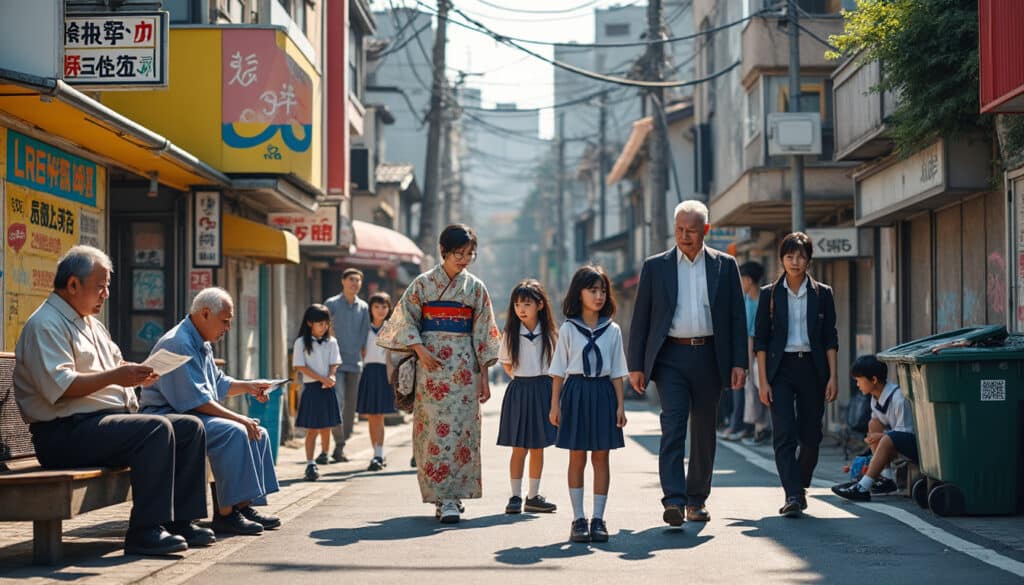
Social and discrimination issues in Osaka
Osaka, a city vibrant with life, culture, and diversity, is no stranger to social and discrimination issues. Known for its rich tapestry of history, Osaka serves as a microcosm of Japan’s broader sociopolitical landscape. Despite its economic advances and cultural…

